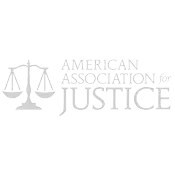Legion Ins. Co. v. Moore, 846 So. 2d 1183, 1186 (Fla. Dist. Ct. App. 2003)
This lawsuit was brought by the insured’s estate against Legion Insurance Company for their refusal to pay uninsured motorist coverage following a fatal accident that claimed the life of James Moore, an employee of Miton Spector Inc. while he was driving his employers truck on business.
The accident occurred on a rainy night in the Coral Gables area. Moore’s vehicle left the road and rolled over fatally injuring Moore. No other car was found at the scene; however, a witness traveling about a mile and a half behind Moore saw a speeding car in the vicinity of the accident when Moore’s truck rolled over. The witness also saw multiple sets of tail lights as the accident occurred. Prior to the fatal accident, Legion issued a policy of insurance to the employer covering the truck and driver and providing Uninsured Motorists coverage.
The UM coverage applied to accidents caused by the unidentified hit-and-run vehicles, but not to single-vehicle accidents caused by an insured. Moore’s widow (claimant) made a claim to Legion to recover benefits under the policy’s UM coverage but Legion denied the claim and requested the court to declare that the accident was not covered by UM benefits because it was a single-vehicle accident caused by the insured and that the claimant had insufficient evidence to support her assertion that the accident was caused by another vehicle. Claimant answered Legions action with the evidence provided by the eyewitness of the speeding car that caused the accident and therefore it fell within the UM coverage and requested the court to strike the Legion declaration against her. The judge granted claimant’s request to strike Legions declaratory action.
Claimant notified Legion that she was going to call an accident reconstruction expert to testify at trial. It was the expert’s conclusion that the probable cause of Moore’s accident was a speeding car that cut in front of his truck suddenly, causing him to steer sharply to the left and thereby spin out of control and roll over. This conclusion was based upon his study of the police accident reports, measurements of the tire marks at the accident scene, examination of photographs from the scene of the accident, and the eyewitness’s statement that he saw an unidentified car speeding in the area at the time of the accident. Legion requested that this testimony should be barred from trial but was denied by their request. Legion appealed the judgment to strike their declaratory judgment action. The appellate court stated that declaratory judgment actions provide important remedies in regard to insurance coverage questions, especially as to claims made by third parties against someone covered by the policy.
In this case it was a first party under coverage claim and that it did not have to decide whether the claimant could make a prima facie case based on the eye-witness testimony that the accident was a hit and run by a phantom vehicle and accident reconstruction expert opinion because the trial courts striking of Legion’s declaratory judgment claim represents that the evidence was strong enough support claimants case for UM coverage. The court also stated that this case was the same as a run of the mill denial of coverage based on the insured causing the accident. Therefore the trial court’s decision to strike Legion’s declaratory action claim was well warranted.
The main message that this case conveys is that insurers often try to deny coverage by finding a loophole that deflects their obligation. It is important that the consumer know their rights when they are involved in an UM accident or any other accident that insurers could possibly deny coverage on.
The accident attorneys of Madalon Law feel it is important that you understand the law and your rights. Contact our Fort Lauderdale law office if you have any questions and we will gladly go over them with you.





